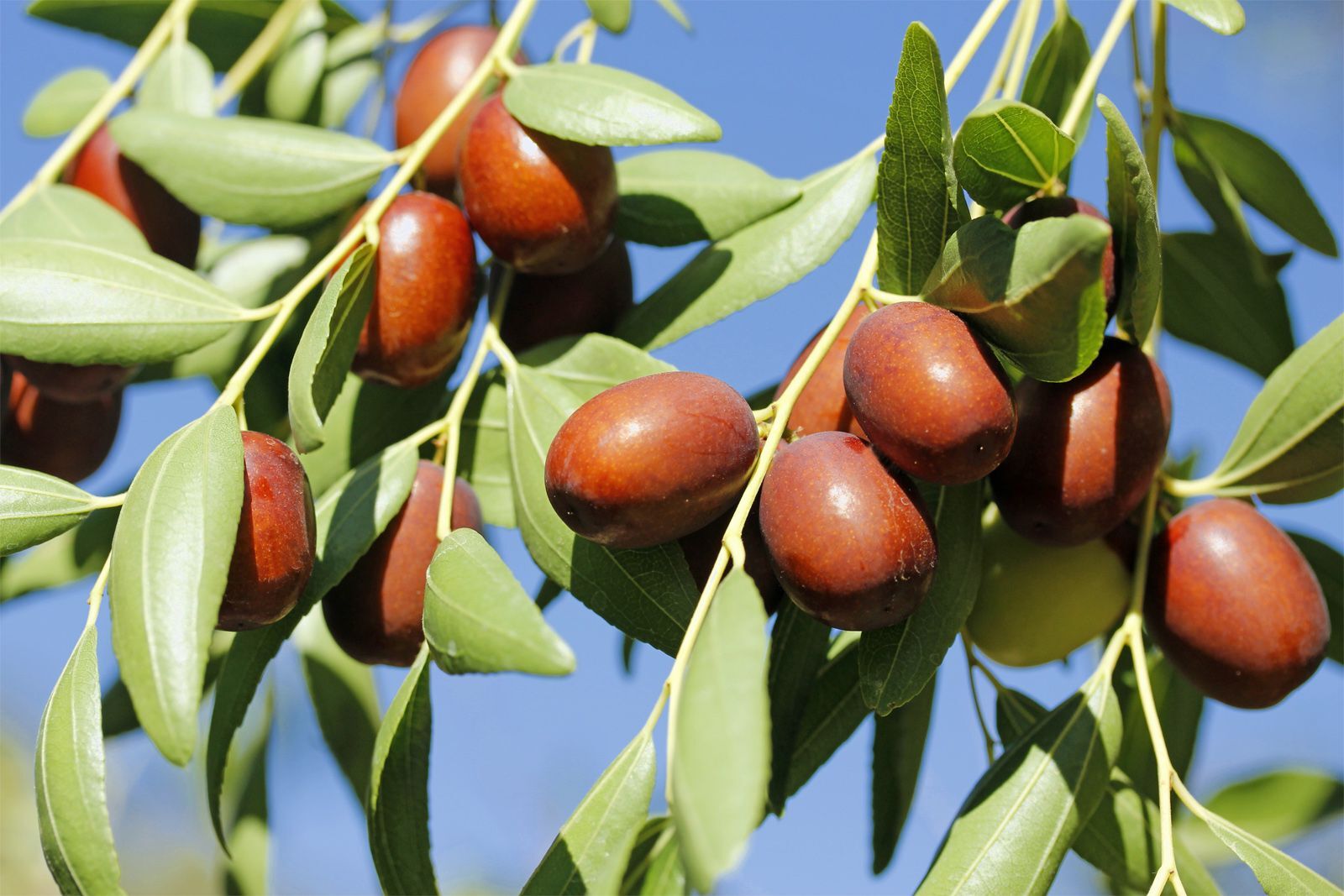
Ever wondered what makes the jujube fruit so special? This small, reddish-brown fruit, often called a "Chinese date," packs a punch in both flavor and health benefits. Originating from Southern Asia, jujubes have been cherished for thousands of years. They are not just tasty but also loaded with nutrients. From boosting your immune system to improving sleep, this fruit does it all. Plus, jujubes are incredibly versatile. You can eat them fresh, dried, or even use them in teas and desserts. Curious about more jujube facts? Keep reading to uncover 20 fascinating tidbits about this amazing fruit!
Key Takeaways:
- Jujube, also known as Chinese date, is a nutrient-rich fruit with a long history and numerous health benefits. It's low in calories, high in fiber, and packed with vitamins and minerals, making it a delicious and nutritious snack.
- Not only is jujube delicious, but it also offers a range of health benefits, including boosting immunity, improving sleep, reducing stress, supporting heart health, and providing anti-inflammatory properties. It's a versatile fruit that can be enjoyed in various culinary dishes.
What is Jujube?
Jujube, also known as Chinese date, is a small, sweet fruit with a chewy texture. It's been cherished for centuries in various cultures for its unique taste and numerous health benefits. Let's dive into some fascinating facts about this incredible fruit.
-
Ancient Origins: Jujube has been cultivated for over 4,000 years, primarily in China. Its long history makes it one of the oldest cultivated fruits.
-
Botanical Name: The scientific name for jujube is Ziziphus jujuba. It belongs to the buckthorn family, Rhamnaceae.
-
Nutrient-Rich: Jujube is packed with vitamins and minerals, including vitamin C, potassium, and iron. This makes it a nutritious snack.
-
Low-Calorie: Despite being sweet, jujube is low in calories. A 100-gram serving contains only about 79 calories.
-
High in Fiber: This fruit is an excellent source of dietary fiber, which aids in digestion and helps maintain a healthy gut.
Health Benefits of Jujube
Jujube isn't just delicious; it's also incredibly beneficial for your health. Here are some of the ways it can improve your well-being.
-
Boosts Immunity: The high vitamin C content in jujube helps strengthen the immune system, protecting against common illnesses.
-
Improves Sleep: Compounds in jujube, such as saponins, have a sedative effect, which can help improve sleep quality.
-
Reduces Stress: Jujube has been used in traditional medicine to reduce stress and anxiety due to its calming properties.
-
Supports Heart Health: The potassium in jujube helps regulate blood pressure, reducing the risk of heart disease.
-
Anti-Inflammatory: Jujube contains antioxidants that have anti-inflammatory properties, which can help reduce inflammation in the body.
Culinary Uses of Jujube
Jujube is versatile in the kitchen. It can be used in various dishes, both sweet and savory. Here are some interesting culinary uses.
-
Dried Snacks: Dried jujube is a popular snack in many cultures. Its chewy texture and sweet flavor make it a delightful treat.
-
Jujube Tea: In some Asian countries, jujube tea is a common beverage. It's made by boiling dried jujubes in water, often with ginger and honey.
-
Baking: Jujube can be used in baking, similar to dates or raisins. It adds a natural sweetness to cakes, bread, and cookies.
-
Jams and Jellies: Jujube can be made into jams and jellies, providing a unique flavor compared to traditional fruit preserves.
-
Savory Dishes: In some cuisines, jujube is used in savory dishes, such as stews and soups, adding a hint of sweetness.
Growing Jujube
Interested in growing your own jujube tree? Here are some facts about cultivating this resilient plant.
-
Hardy Plant: Jujube trees are hardy and can tolerate a wide range of temperatures, from hot summers to cold winters.
-
Drought-Resistant: These trees are drought-resistant, making them suitable for arid regions.
-
Soil Preferences: Jujube trees prefer well-drained soil but can grow in various soil types, including sandy and loamy soils.
-
Pollination: Jujube trees are self-pollinating, meaning they don't require another tree to produce fruit, although having more than one can increase yield.
-
Long Lifespan: A jujube tree can live for over 100 years, providing fruit for generations.
Jujube is a remarkable fruit with a rich history, numerous health benefits, and versatile culinary uses. Whether you enjoy it fresh, dried, or in a dish, jujube is sure to delight your taste buds and boost your health.
Jujube: A Fruit Worth Knowing
Jujube, often called the Chinese date, packs a punch with its nutritional benefits and rich history. This small fruit, loaded with vitamin C, antioxidants, and fiber, supports immune health and digestion. Its versatility shines in both culinary uses and traditional medicine. From soothing teas to sweet snacks, jujube fits seamlessly into various diets.
Beyond its health perks, jujube's cultural significance spans centuries, symbolizing prosperity and longevity in many traditions. Whether you're a foodie, a health enthusiast, or just curious, jujube offers something intriguing.
Next time you're at the market, grab some jujubes. Experience their unique flavor and benefits firsthand. This little fruit might just become a staple in your kitchen and wellness routine.
Frequently Asked Questions
Was this page helpful?
Our commitment to delivering trustworthy and engaging content is at the heart of what we do. Each fact on our site is contributed by real users like you, bringing a wealth of diverse insights and information. To ensure the highest standards of accuracy and reliability, our dedicated editors meticulously review each submission. This process guarantees that the facts we share are not only fascinating but also credible. Trust in our commitment to quality and authenticity as you explore and learn with us.


